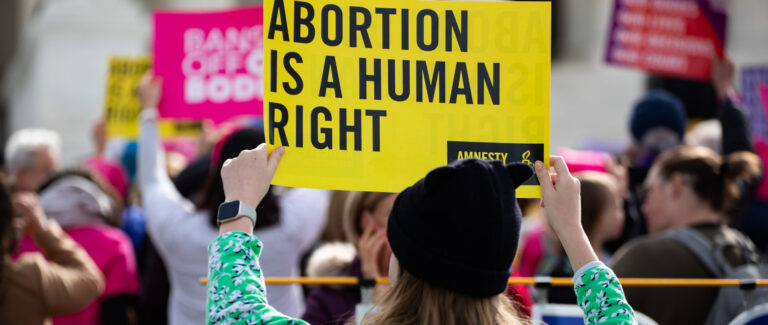Around the world, various technological systems reinforce gender inequalities and entrench racial and socio-economic systems of power, Amnesty International said today in a briefing titled “Gender and Human Rights in the Digital Age”.
Marginalized groups, including women and LGBTI people, face human rights threats due to pervasive and inappropriate data collection practices that do not reflect individual realities. Governments justify such data collection tactics as cost-saving measures to roll out automated systems for benefit payments in the public sector, while large technology companies accumulate and deploy users’ personal data for their profitable surveillance-based business models. The poorly regulated accumulation and processing of this vast amount of data not only constitutes harmful mass surveillance, but also perpetuates discrimination against women and LGBTI people.
“From the open-ended rollout of digital ID systems to the algorithms used in social security systems, this growing trend towards integrating technology into all aspects of daily life comes amid an already existing global gendered ‘digital divide’ where historical patterns of inequality have limited some people’s access to technology,” said Imogen Richmond-Bishop, Technology and Economic, Social and Cultural Rights Researcher at Amnesty International.
“Any technology deployed to govern is embedded in the discriminatory context of an existing digital divide.”
For example, in Pakistan, the National Database and Registration Authority (NADRA) suspended the “X” category of Computerized National Identity Cards (CNICs), which allowed individuals to identify as a gender other than male or female. The decision left thousands of transgender and gender diverse individuals without valid identity documents, preventing them from exercising their fundamental rights, such as voting and accessing healthcare and employment opportunities. However, registration under the “X” category was resumed in September 2023.
Globally, there exists a gendered “digital divide” where historical patterns of inequality have limited some people’s access to technology, and there is a growing trend towards integrating technology into all aspects of daily life.
Imogen Richmond-Bishop, Technology and Economic, Social and Cultural Rights Researcher, Amnesty International
In addition to the digital divide, there are several other barriers that women, girls and LGBTI people face when exercising their human rights in the digital space, including access to information on sexual and reproductive health, rights and services such as abortion.
When governments and social media platforms restrict access to health information and critical services, especially for women and LGBTI people, this can violate the right to health. This trend has been on the rise in the United States, where abortion rights activists and organizations have reported that abortion-related content has been removed from Meta and TikTok, effectively preventing people from accessing life-saving information.
Systems that use algorithms to promote content on social media platforms can also reinforce prejudice by amplifying harmful and discriminatory content. An Amnesty International investigation into TikTok found that the company uses information about users to infer personal characteristics, such as gender and interests, to personalize and tailor content and advertising.
Targeted digital surveillance using spyware can also be a form of technology-enabled gender-based violence (TfGBV). Women and LGBTI people are targeted and surveilled for their participation in human rights activities, and suffer different gender-based consequences from such targeting.
Amnesty International’s research in Thailand has found that activists are targeted by malicious and unlawful digital surveillance and online harassment by state and non-state actors, with severe adverse effects on women’s and LGBTI human rights defenders. This vicious targeting, which includes the notorious Pegasus spyware, has created a “chilling effect” and, in some cases, led to self-censorship and withdrawal from activities.
Thai women and LGBTI activists also faced online harassment, including the publication of personal information, smear campaigns, threats, and abusive messages aimed at intimidating, distressing, and silencing them.
“It is vital that governments and private actors take an explicitly gender-sensitive approach to regulating technology and addressing its harms. If these systems perpetuate discrimination and inequality against women and LGBTI people, they should not be deployed,” said Imogen Richmond-Bishop.
background
In 2024, Amnesty International published a technical commentary on the Samagra Vedika system used in the Indian state of Telangana. The technical commentary was published in response to media reports that accused Samagra Vedika of denying thousands of people access to social protection measures, including food security, income, and housing.
In 2023, Amnesty International’s investigation, “The Automation Trap: Poverty and Discrimination in the Serbian Welfare State,” documented how many people, particularly Roma and people with disabilities, were struggling to make ends meet, unable to pay bills or put food on the table, after being removed from social assistance following the introduction of the social card registration system.


